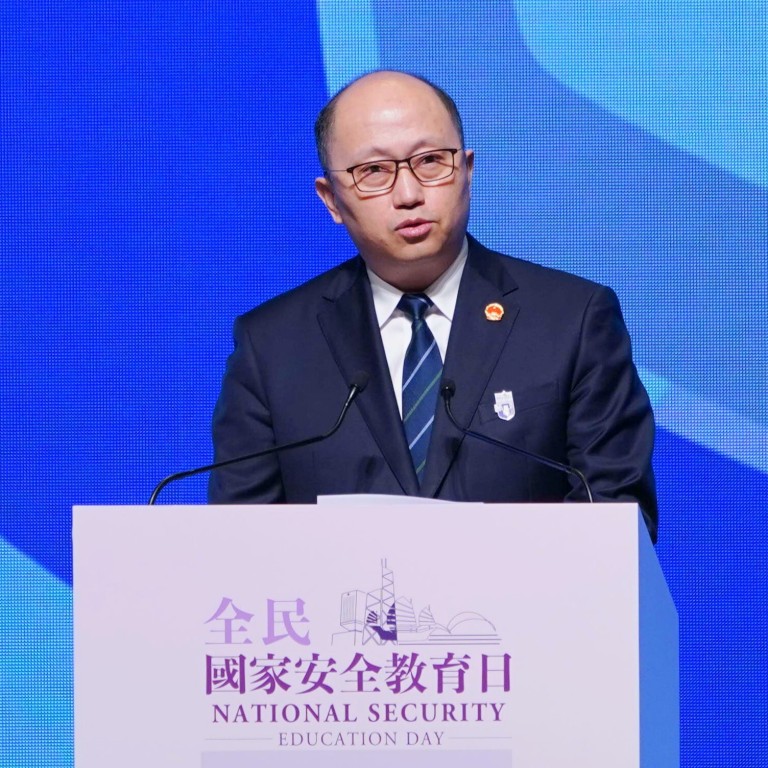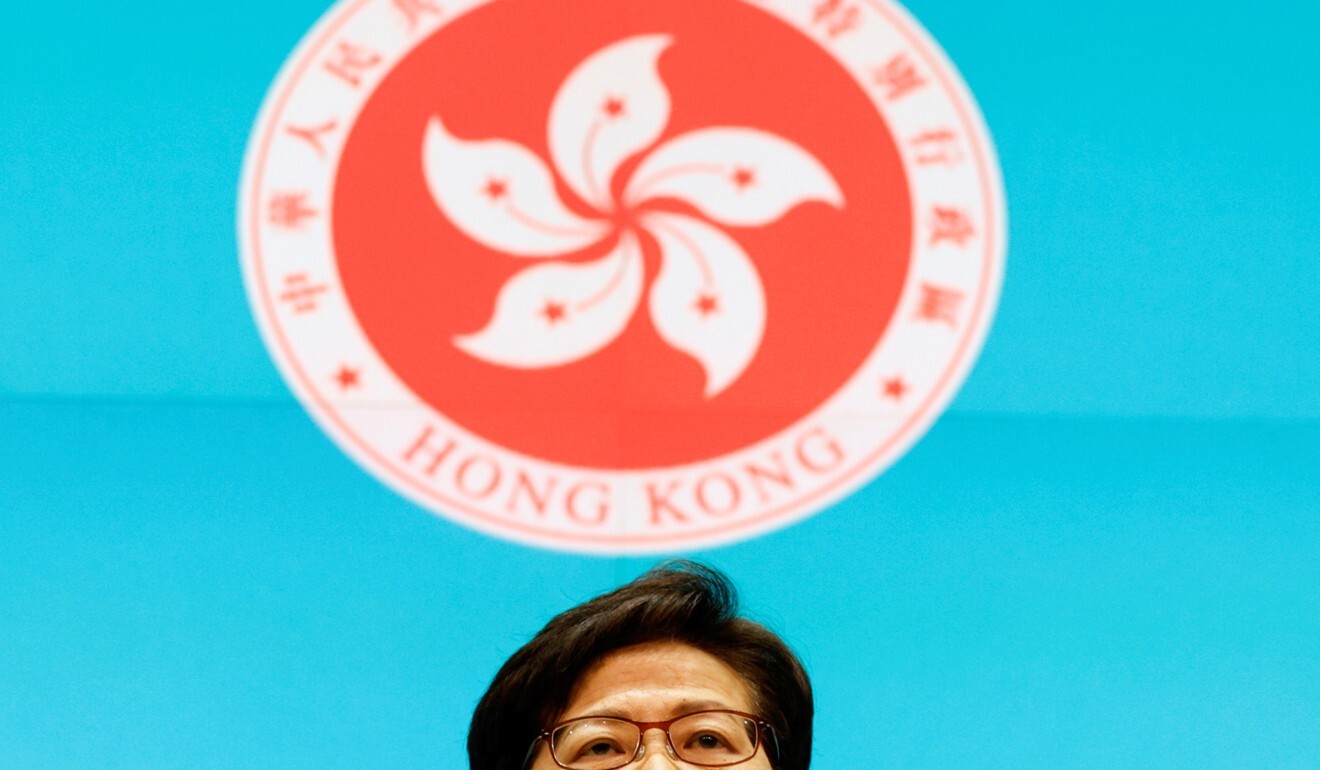
Hong Kong’s judiciary should uphold country’s will, advance its interests, says Beijing’s national security chief in city
- Zheng Yanxiong says city’s courts derive power from Beijing; rule of law only ‘castles in the air’ if national security is not defended
- However, panellists at University of Hong Kong discussion offer dimmer view of security law, with one arguing it is taking ‘a toll on the civil society and media’
Hong Kong’s independent judiciary derives its authority from the central government, and as such, its decisions should reflect the country’s will and interests, according to the head of Beijing’s national security office in the city.
“[Hong Kong’s] independent judiciary’s power is authorised by the National People’s Congress. It must highly manifest the national will and national interest, or else it will lose the legal premise of the authorisation,” said Zheng, who is the director of the Office for Safeguarding National Security.
“It will be the biggest loophole in the rule of law if national security is not safeguarded.”

Zheng, who was appointed by Beijing to head the office last July, reiterated that national security was the fundamental prerequisite for the city’s stability and the long-term development of the “one country, two systems” framework under which it is governed.
“Once national security falls, the city will then be dominated by ideas of independence, mutual destruction and self-determination,” he told East Week magazine, part of the Sing Tao News Corporation. “How can we then secure ‘two systems’ when ‘one country’ is gone?”
Hong Kong police to put 7,000 officers on streets for key July 1 anniversaries
“The national security police unit, which was formed at a ‘time of chaos’, shoulders the sacred mission of safeguarding national security,” he said. “They deserve the respect, reverence and reliance of all Hongkongers.”
However, several legal experts at a panel discussion at the University of Hong Kong (HKU) on Tuesday offered a dimmer view of the national security law, pointing to how the legislation had reshaped the city over the past year, from its political system to its media landscape.
Is Hong Kong’s national security law being weaponised?
Kent Roach, a University of Toronto law professor who specialises in comparing different national security legislations, said Hong Kong’s “is not a mild law”, arguing it went “beyond even the most illiberal practices of liberal democracies”.
He noted that in other jurisdictions, the common threshold for such national security offences involved acts like espionage or attempting to wage outright war.
Cherian George, associate dean of Baptist University’s school of communications, said he feared the reining in of the press would continue.

He also predicted the approach taken in the future could be even “more pernicious” than the arrests and asset freezes seen in the Apple Daily case, with the authorities using subtler tools such as economic pressure and administrative means to restrain the media.
Professor Ling Bing, who specialises in Chinese law at the University of Sydney, pointed to the Hong Kong legislation’s extraterritorial power. One year on, he said, it remained unclear just how the law would be applied outside the city.
A Hong Kong court’s ruling last year that an official English version of the law was not necessary had only made extraterritorial application more problematic, Ling added, as the legislation theoretically covered people around the world who do not speak Chinese.
Self-censorship concerns mount after Hong Kong’s Stand News purges articles
Zhu Han, a specialist in Chinese constitutional law at HKU, said that while it was legal for Beijing to impose the law – given the city was unable to do so on its own – it had deepened the central government’s reach into the Hong Kong bureaucracy and given it access for the first time ever to daily policymaking processes.
A total of 64 people have been charged in court under the law, which targets acts of secession, subversion, terrorism and collusion with foreign forces.

“I had to type some documents on my own to avoid the leakage of confidential information,” she said.
“The most sensational thing, which even opposition parties in other countries will not do, is that someone travelled to the United States and sought intervention. This definitely involved national security issues,” he said.


